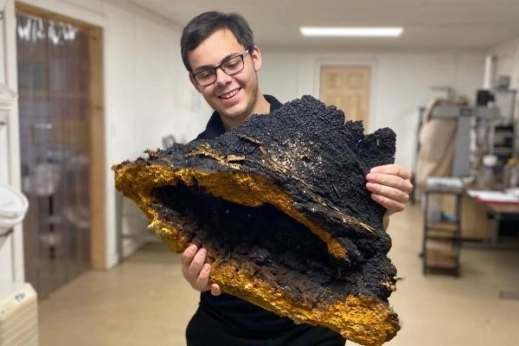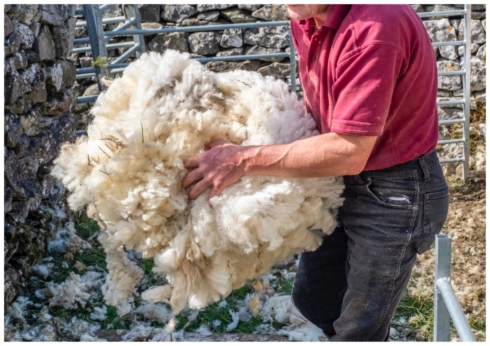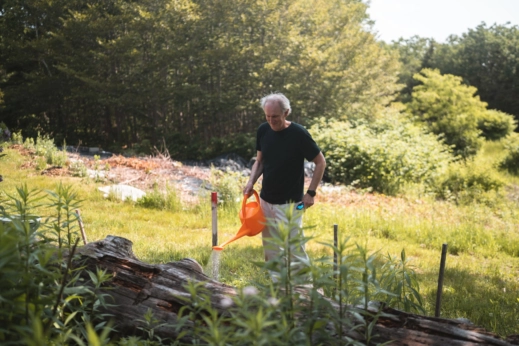“Everyone used to joke that I would deliver my second child in my station wagon while I was making produce deliveries,” Renee Giroux recounts. As the general manager of the nonprofit Northwest Connecticut Food Hub (NWC Food Hub), Giroux...
“Everyone used to joke that I would deliver my second child in my station wagon while I was making produce deliveries,” Renee Giroux recounts. As the general manager of the nonprofit Northwest Connecticut Food Hub (NWC Food Hub), Giroux spends a lot of time in that station wagon. She coordinates the pickup and delivery of 35 Litchfield county farms’ fresh, locally grown produce to area food pantries (as donations) and wholesale customers, such as schools, grocery stores and restaurants.
It’s a lot of work and a lot of organization. But it’s work that Giroux happily chooses. From 2013 to 2016, she was the New York City restaurateur David Bouley’s farmer, growing more than 300 types of herbs in downtown Manhattan. But then in 2017, Giroux and her pastry chef husband moved to Litchfield County to start their own farm. She quickly identified problems within the distribution system.
“Small- to medium-sized farms rely on sales just like other businesses. Growing the product isn’t the problem,” says Giroux. “The problem is finding the channels of distribution. Food hubs bridge the marketing, sales and distribution channels while taking out any middlemen.”
In a feasibility study conducted by the nonprofit Partner Sustainable Healthy Communities in 2015, the local farmers expressed a common desire for a Food Hub.
So, Giroux started one.
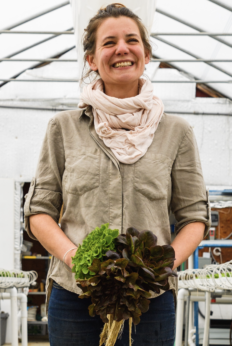
Renee Giroux. Photography by Winter Caplanson.
The NWC Food Hub brings local farmers together to create community, collaborate and understand the bigger issues they face. “It can be really challenging for small farms to hire the appropriate staff and meet the needs of our overall community,” says Giroux. The overarching goal is to bridge the gap between the food insecure, food pantries, farm-to-school projects and feeding the general population.
“My mission is so simple: It is to raise awareness about small family farms throughout New England and beyond; to show how strong and mighty and resilient we all are; how we are the backbone and the fabric to a lot of our communities,” says Giroux. “Every morning you should think of your farmer.”
In Connecticut, small farms represent 28 percent of the total farms, many of which are first-generation farms. Small, first-generation farms are often susceptible to common business start-up issues. The NWC Food Hub aims to help the local agriculture sector’s 200 farms overcome common hurdles, such as establishing social connections and distribution channels.
Additionally, Giroux advocates for fair farmer pricing. Whether the food is sold to wholesalers or donated to nonprofits, the farmers receive the same price for their produce made possible through grants.
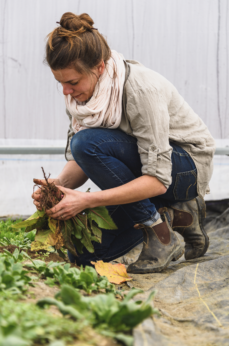
Renee Giroux. Photography by Winter Caplanson.
The local farms Giroux works with grow more than 100 different varieties of local produce, including microgreens, cut greens, corn, apples, cucumbers, collard greens, kohlrabi, tomatoes, chicory, endive and more.
This past year, the NWC Food Hub distributed more than 100,000 pounds of produce to 16 food pantries, 24 schools and numerous restaurants and grocery stores. All produce is uploaded weekly, on Sundays, by the farms, and the ordering platform opens up Monday for nonprofits and wholesale buyers to place their orders. “Everything is fresh in, fresh out. By working together as a farm team, we post what we have available, the orders are placed and, within 24 hours, it is delivered to the consumer, on children’s plates or being handed out at the food pantries,” says Giroux.
Crop planning and future projections are made in the offseason by larger food pantry directors. The majority of Food Hub’s funding comes through a Local Food Purchase Assistance Cooperative Agreement Program grant, with additional donations provided by local nonprofits and individuals. They are currently funded through 2025, “but, ideally, we’d like to break even by 2024 so we don’t have to rely on donations,” says Giroux.
Finding pantries to which to donate the excess produce is the easiest part of the job, as they are small and do not have much funding to purchase fresh produce to serve their clients. According to the nonprofit United for Alice, in 2021, of Connecticut’s more than 1.4 million households, 552,710 (35 percent) had incomes below the ALICE Threshold of Financial Survival. (ALICE stands for Asset Limited, Income Constrained, Employed or earning more than the Federal Poverty Level but not enough to afford the basics where they live.)
NWC Food Hub also works with ProduceRx and NourishRx to provide curated boxes of farm-fresh produce for patients with specific medical needs. Giroux coordinates with Charlotte Hungerford Hospital in Torrington, CT, which focuses on getting nutritionally dense food to patients with underlying health conditions, specifically Type 2 diabetes. Numerous studies show that “produce prescriptions” (under the umbrella of “food as medicine”) positively affect patients’ diets, decrease food insecurity, increase disease management and reduce overall healthcare costs.
After seven years of ups and downs, NWC’s Food Hub model is now running smoothly. “When it started, it was just me, boots on the ground, doing everything,” says Giroux. She was the entire enterprise, handling invoicing, deliveries, taking orders and forging connections. The NWC Food Hub now has a small network of volunteers, two drivers and a coordinator to communicate with farmers as well as solve any last-minute order issues. With the NWC Food Hub running in a higher gear, Giroux’s own Subaru should get some rest.
The post Meet the Farmer Championing Fair Food Prices While Fighting Food Insecurity appeared first on Modern Farmer.




